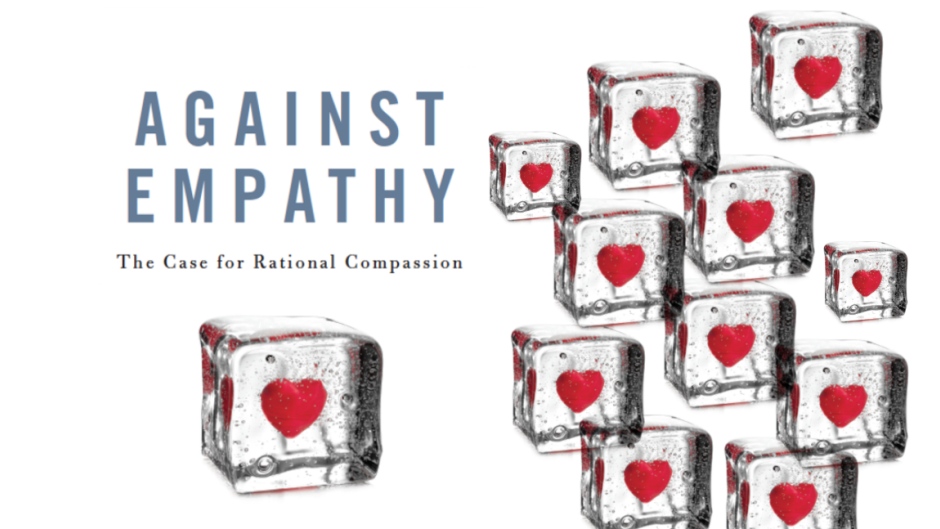Book Review: “Against Empathy”
“Against Empathy: A case of Rational Compassion”, written by Yale psychologist Paul Bloom
September 18, 2017
When “Against Empathy” first caught my eye, I expected to be mind-blown. An award-winning book written by a Yale psychology professor arguing that empathy is the bane of human existence, this book needed to shift my paradigm dramatically, and I wanted to finish with a new perspective of a world flourishing without something that seems so essential to humanity.
“Empathy–the capacity to judge what other people are thinking and feeling”
When you first think of empathy, you probably imagine helplessness on their hands and knees and empathy coming to their aid with crutches. Recall the shooting at Sandy Hook Elementary, the kidnapping Natalee Holloway, and the image of the battered Syrian boy–events that all caused public outrage and sympathy. Empathy seems so important to human society; it’s something that combines us all as a community. In the wake of similar tragedies, people have donated time, money, and blood. But why do people respond to certain misfortunes and not others? And in the hum of traffic, do we come oblivious to the less spontaneous, but more prominent global issues, such as the starvation of people in Africa or rising sea level? Why do certain misfortunes capture our attention over others and does this make them more important? This is where Paul Bloom forms his argument.
“Empathy is a poor moral guide. It is biased, short-sighted, and innumerate—we should try to do without it. ”
Bloom argues that empathy leads to bad decision-making as people are overshadowed and therefore made impulsive by their feelings. The power of empathy is immense, but it can trigger a flood of human emotions which blinds us from the reality and can set us in favor of someone/something in particular despite the conditions of others. It can push us to care about people, but sometimes, it can push us the care about the wrong people. Bloom here takes an enlightened stance, arguing for an emotionally detached world with an absence of feelings but the presence of reason.
The basis of Bloom’s argument is that fine feelings are not the best trigger for appropriate moral response in all realms of life. Further, kindness paired with empathy often has bad effects. For example, a doctor who feels their patient’s pain is unlikely to do their job. But Bloom’s argument turns out to be much more nuanced than initially presented. He isn’t arguing for heartlessness. Instead, Bloom argues for rational compassion, claiming that empathy leads to bias that unconsciously ranks the importance of events on the irrationality of emotions.
“But if the issue with empathy is that it leads to bias, won’t more widespread empathy eliminate this bias and produce a deeper understanding and eliminate this bias?”
This is a question that causes his argument to fall short.
Empathy gives us a deeper understanding of those around us and makes decisions more rational because only with empathy can you think deeply from an angle of a person that will be affected by a decision. Further, rationality is not rationality by itself but instead is led by taking the whole picture into consideration; otherwise, it would be more inclined to bias.With more empathy and understanding, we can eliminate the unnecessary bias, discrimination, and ignorance placed between us. Empathy enables rationality and should be coupled with it, not suppressed.
And while Bloom eventually argues for compassion over empathy, claiming that compassion is a more reasonable form of empathy, it seems that Bloom is trying to dodge critics with outlandish definitions formed for his argument specifically.
But despite my disagreements of Bloom’s argument, I suggest it as a good read for the sake of its unique argument and critical claims. I didn’t come out of reading this book with a shifted paradigm, but throughout the read I was constantly pressured to think deeply about empathy–to even question my own beliefs in an outlandish way. “Against Empathy” is provocative, astringent and witty, and though Bloom certainly may not address all forms of his argument, his perspective and assertions are enlightening ones, forcing the reader to question his or her own beliefs and knowledge.









